True Fair-Trade on the Blockchain
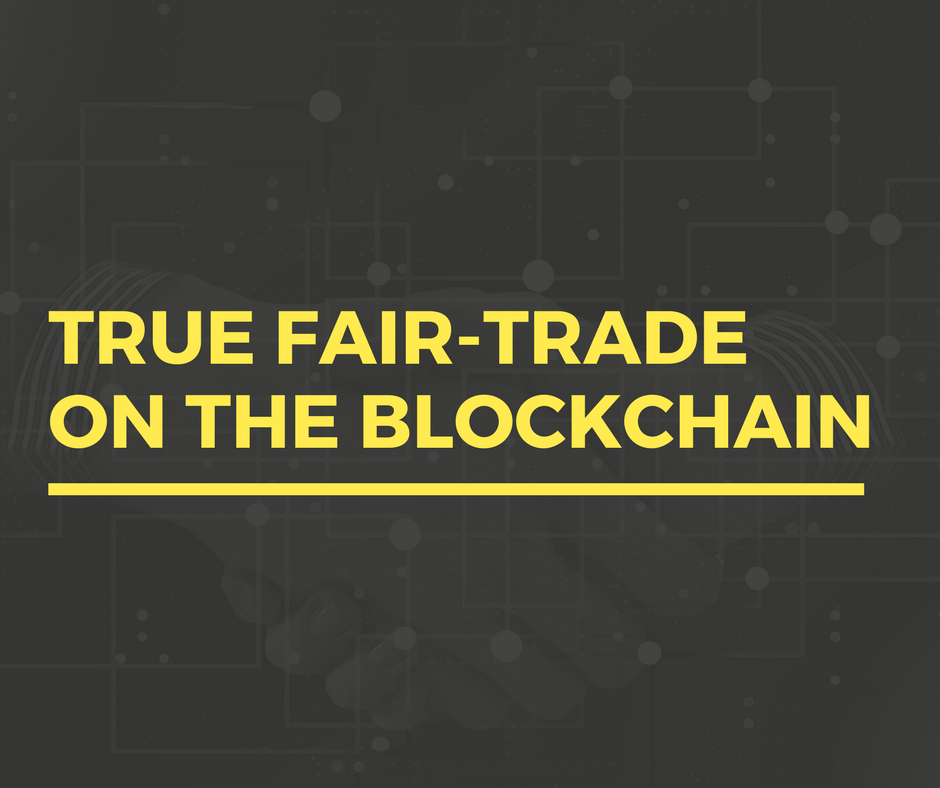
Factory workers, farmers, and tradesmen at the end of the supply chain are not making a living wage. They’re being forced further into poverty, creating a messy global economic environment.
When one thinks of cheap labor, usually sweatshops are one of the first things that come to mind. These “sweatshops” exploit their workers by paying extremely cheap wages. Wages that aren’t enough for most workers to live on, which leads to extreme poverty. And, that’s just one of the issues with cheap labor. Workers are also subjected to unsafe working conditions and work an incredible number of hours each week.
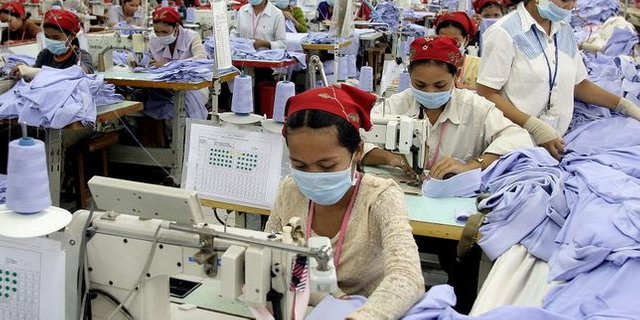
Such conditions have been exposed on mainstream media a number of times. The most notable was the Rana Plaza Collapse that happened in 2013. The building collapse was a result of the owner ignoring warnings to cease using the building as it was unsafe after cracks appeared the day before. By not heeding the warnings of the buildings integrity, 1,134 people were killed and approximately 2500 injured. Over 35 people were charged with murder as a result.
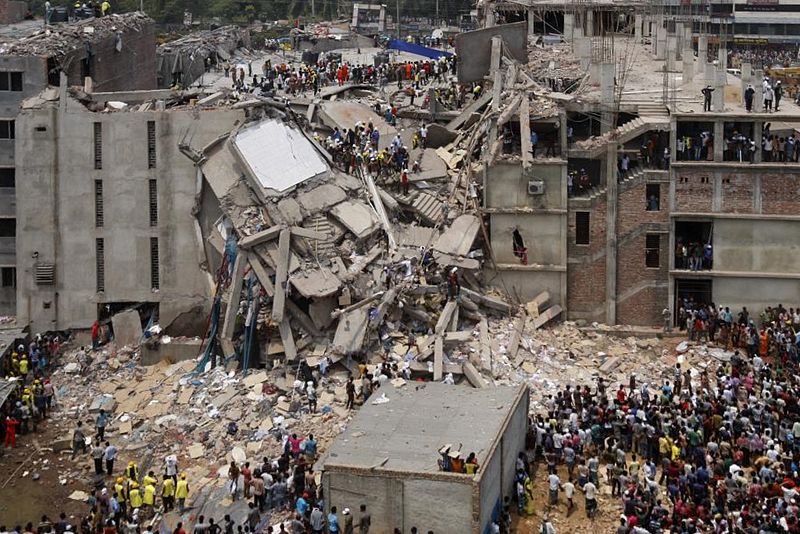
With current trends in “fast fashion”, the clothing industry is redesigning looks multiple times per year, forcing the factories to manufacture clothing at lower rates and faster turnarounds, all while trying to appease the fashion giants like H&M, Old Navy, and many others.

There is also a documentary style film in which the filmmaker travels to various parts of the world to see who makes our clothing. It also looks at the after effects of the manufacturing process —such as soil and river pollution. If you haven’t watched this, I urge you to do so. It’s now available to stream on Netflix. Here is a trailer:
Livia Firth, Executive Director of The True Cost Movie, suggests fashion plays a pivotal role in our world today. She says,
“Take two very simple actions that we perform every single day: getting dressed and eating. Now start a journey backwards – to where your food and your clothes come from. At the other end, you will rarely find happy people, treated with dignity and respect. Human beings working at the bottom of any supply chain – whether is strawberry picking, prawn fishing, cotton farming, garment workers – are often treated like slaves, without reference to our common humanity. So “fashion” – i.e. what we wear every single day, has huge relevance and huge consequences on human, social and environmental capital.”
Clothing isn’t the only product that has caused severe struggles for its workers.
If you search Google for “Fair Trade” you’ll pull up a list of organizations whose mission statement is to create fair trade among the commodities that are most likely to cause harm in their farming/production/manufacturing processes. These commodities include coffee, tea, textiles, cocoa and diamonds.
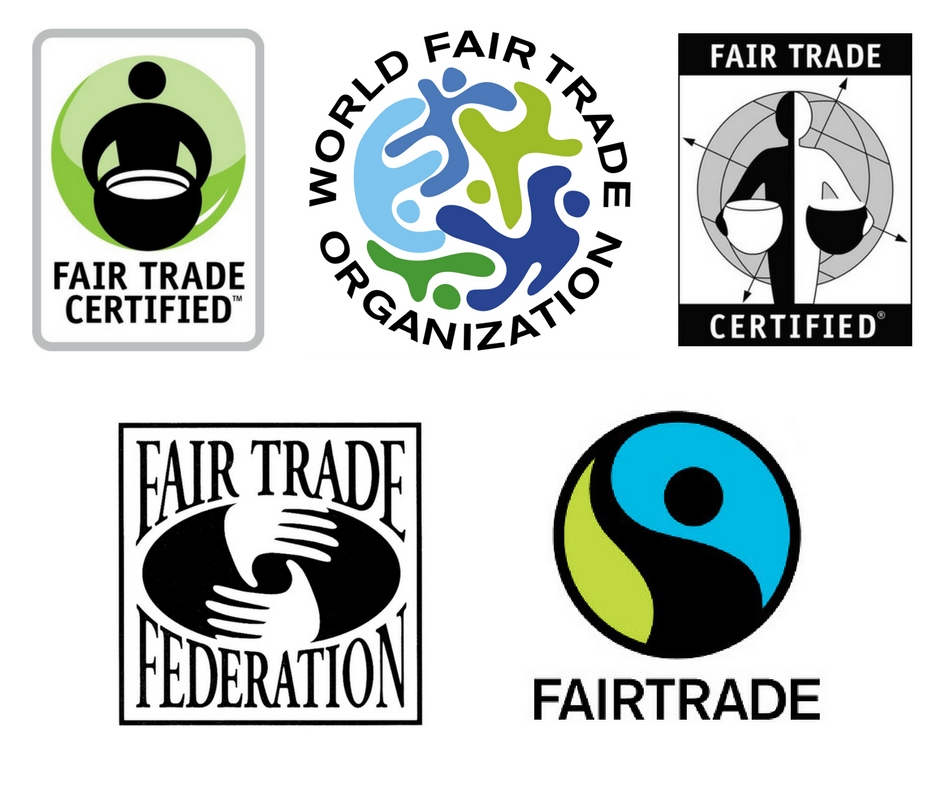
I set out to create a blog post for the Steemit community about how fair trade is changing lives (for the better). However, after diving into research, I can’t help but question just how much actually makes it to those most impoverished because of cheap labor, fast fashion, etc. See, there is one flaw, and it’s a big one —there isn’t a way to track just how much money makes it back to those producing these products. If you have ever purchased a product that was Fair Trade Certified, you know the pricing difference.
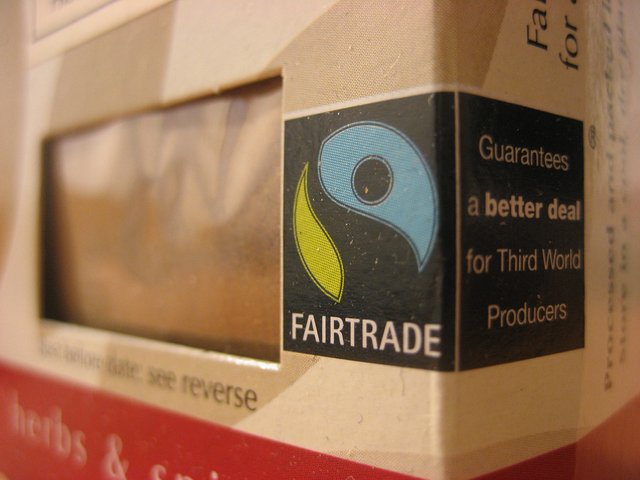
It is estimated that only 1.6% to 18% of the extra charged for fair trade products make it back to the farmer. There are a number of other criticisms about Fair Trade products; however, we won't get into that here.
After doing more research, I found that there are some exciting Fair Trade projects that are on the blockchain!
Probably the most popular of those is Bext 360. Bext 360 is a Denver, Colorado based company that uses the blockchain to provide transparency within the coffee industry. Although still being tested and developed, the concept is unique for a variety of reasons. First off, the farmer would take the coffee “cherries” to a robot that processes them and if the farmer accepts, they are paid on the spot. It also educates the farmer on the best time to pick, and other techniques that can be used to maximize profits.
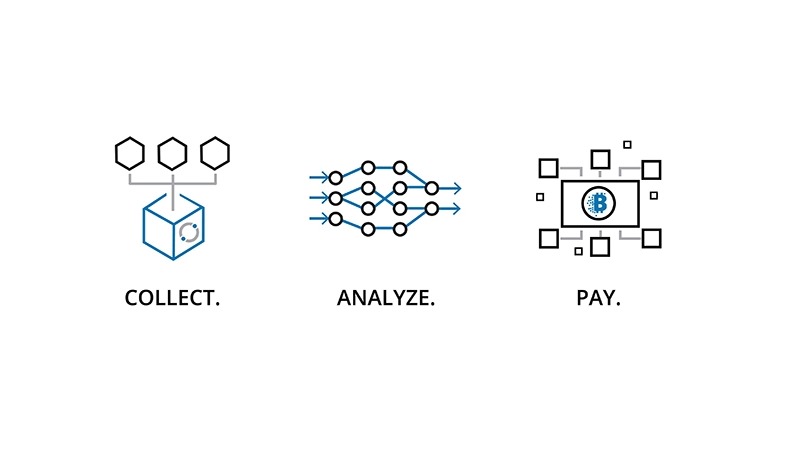
I also found a Fair Trade blockchain organization called, Cofe Project. Although more of a marketplace type setup, it’s still on the blockchain and connects farmers, roasters, and consumers.
 With their model, there is only 5 stops in the supply chain, instead of the normal 15.
With their model, there is only 5 stops in the supply chain, instead of the normal 15.
From their website:
“We will create a marketplace to connect consumers with farmers and roasters and allow direct and transparent transactions between all parties. The coffee beans can be sent directly from the farmer to the consumer, via a local roastery, to reduce the time the beans spend in the supply chain. A shorter chain means fresher beans and better coffee, all of which can be traced directly to the source.”
Here is a Steemit post about them by @robtailored:
https://steemit.com/coffee/@robtailored/fair-trade-coffee-a-broken-system
Although each has their own unique concept, I could see both working to help to alleviate the above named problems.
There are other blockchain projects that are more focused on making our supply industry more transparent overall. I’ll touch on a few of them below.
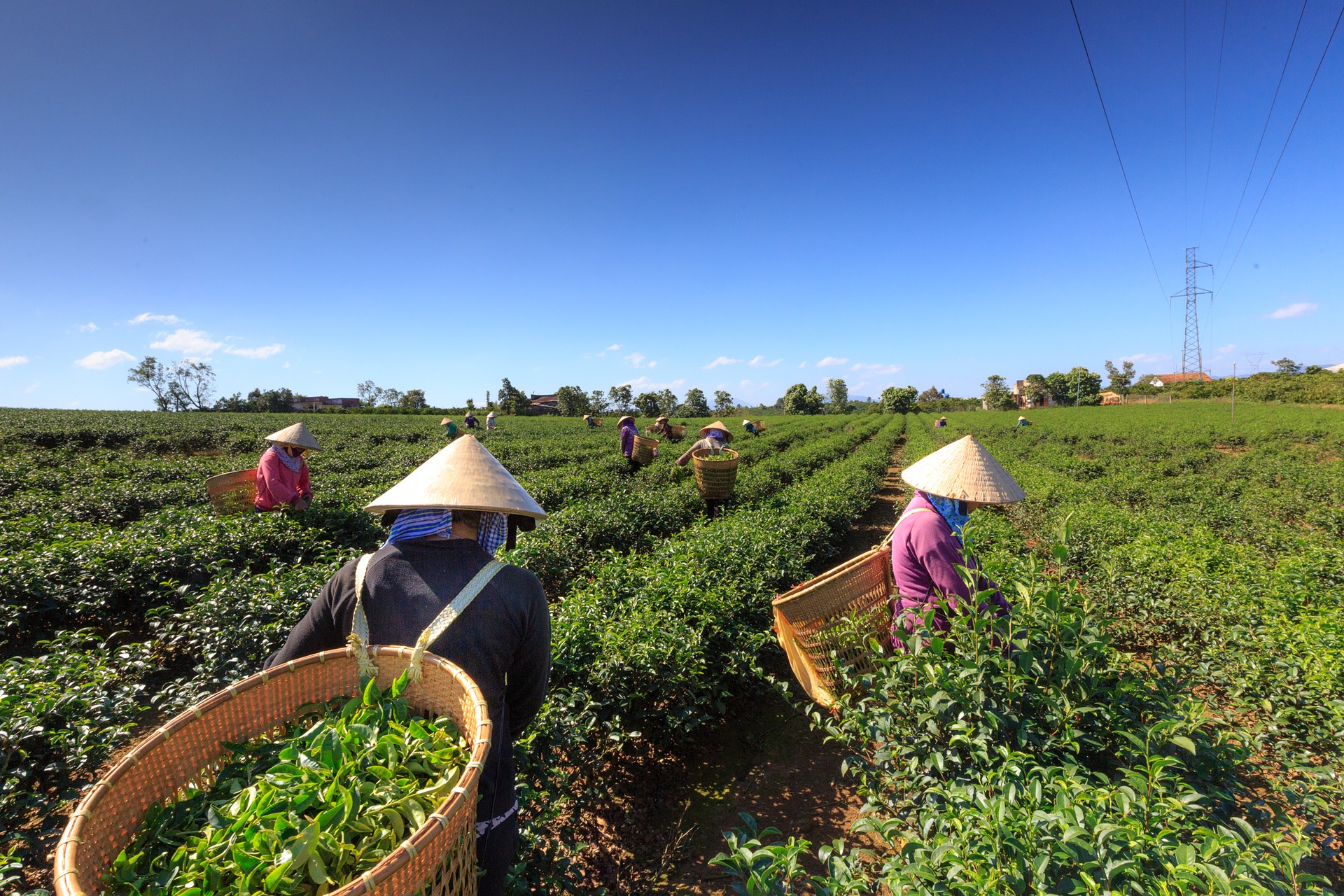
Provenance is blockchain based supply chain startup in the UK that has raised over $800,000 in seed capital. As the name suggests, they allow the purchaser to easily track the history of an item. They aim to provide transparency across many industries including, the fashion industry, the food supply, organic cotton, coffee and more. Without a doubt, Provenance is already a leader in creating a more transparent supply chain. A supply chain that not only tracks the goods from start to finish, but also provides proof (on the blockchain) that everyone is paid a fair and living wage.
Grass Roots Farmers Cooperative is an Arkansas (US) based subscription box company that has adopted the Provenance blockchain technology in hopes of creating more transparency to the consumer.
Another company that has made headlines is, Ripe. They are using the blockchain to track food from farmer, to distributor, to consumer. Their first pilot project was a 180-acre farm in Boston.

Besides the benefit of creating true fair trade, there is another side benefit —less waste. Because the blockchain technology allows for closely monitoring, companies are able to have information that was never available before. Information such as environmental factors that hinder the freshness of fruits & vegetables.
Working with blockchain organizations like the ones mentioned in this post will challenge the business model of large manufacturers. It’s ringing in a new era of transparency, which is focused on equal rights for all human beings, even those stitching seams at the end of the supply chain.
When I began to understand cryptocurrency, I realized that blockchain technology was going to change a lot of things within our world —and not just our currency. I have to say though, I never dreamt that I would see so many projects that, without a doubt, give the power back to the people.
If you know of any exciting blockchain projects that are bringing about true fair trade, I'd love to hear about them in the comments below.
Sources:
http://www.triplepundit.com/special/future-of-fair-trade/change-world-wardrobe-5-things-may-know-fair-trade-apparel/
http://www.fairtradeusa.org/what-is-fair-trade/impact
http://truecostmovie.com/
https://en.wikipedia.org/wiki/2013_Savar_building_collapse
https://en.wikipedia.org/wiki/Fair_trade
https://grassrootscoop.com/
https://www.ripe.io/
https://www.bloomberg.com/news/articles/2017-11-09/the-internet-of-tomatoes-is-coming-starting-with-boston-salads
Great to birtuallt meet you from the other side. What an amazing & informative post - I’m thrilled you found me so I could follow, read & learn.
This post really should be read by so many. Let me know if you release it too on the other side. Post like this have power in them to convert the conditioned ignorant.
Brilliant, thank you. Resteemed, Tweeted & FB too. Kindest DJ
Thank you so much, DJ! I agree that everyone should read it. It's so exciting to see changes like this. Thanks for resteeming. I look forward to getting to know you and seeing more of your posts.
Great post I showed my wife as well! Definitely think blockchain can fix a lot of problems thanks for spreading the word looking forward to more post!
I'm so glad that you found value in it, Tom! I'm super excited about all the changes that will come about because of blockchain technology.
Thanks for the follow...I followed you back.
Beware of Google+. I've been in active threads before and switched accounts and each account shows entirely different comments. The shadow banning is digusting on that site. I'm saying that here because you might not see it on your G+ post.
The very reason I got into blockchain tech in the first place was because I saw its potential at solving real world problems, creating transparency in supply chains and creating a way of having business conducted in a way that was effectively regulation-proof, decentralised and trust-less (by that I mean you don't have to trust other people, you can verify through the use of witnesses, smart contracts and virtual escrow etc).
It's part of something that I'm doing with my colleagues in the #promo-steem team, effectively we have developed a method for humanitarian work to be delivered and verified on the blockchain. The same principle can be applied to all sorts of businesses. And when you think about what @ned was talking about with his 100K+ microbusinesses on the STEEM blockchain, it's well worth understanding how this technology can be used to really create massively added value for everyone from the producer to the consumer.
While I didn't quite realize to what extent, I remember the realization that the technology would change things.
It seems like you are involved in a few interesting projects. I followed you and look forward to seeing your posts. I looked through a few of them...it appears like we agree on a lot of things. :)
I'm not familiar with 100K+ microbusinesses on the STEEM blockchain? @ned is a co-founder, correct?
The technology doesn't seem to be catching on as quickly in the United States. I invite so many people here (that I know would do well and be a benefit to the community); however, I think it's a little intimidating for someone who doesn't understand cryptocurrency.
You could well be correct. I think that is very much our job, to educate people, to show them that it really isn't that scary. The 100K + microbusinesses that @ned talks about was in one of his start of the year videos. I personally see that the STEEM blockchain, with its position as the biggest blockchain on the planet (which it is...it makes up around half of all global blockchain transactions) has the ability to really make things happen in the real world. Thanks for writing back, it's great to connect with loads of awesome likeminded people all across the globe!
great post Rebecca! So good to see there are already a bunch of blockchain projects to make supply chains transparent. I was inspired by the True Cost Movie as well! As mentioned, I am starting to create this database with blockchain startups / projects for social impact and I will definitely add these. Thanks for sharing!